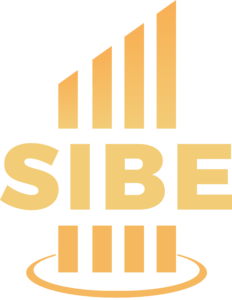According to the World Bank Database, millions of businesses are established worldwide every year. Behind these businesses are ambitious entrepreneurs eager to bring their ideas to life. However, amidst the excitement and enthusiasm, it’s crucial to recognize that a significant number of these ventures fail to achieve long-term success.
Surprisingly, the main reason behind many of these failures is not a lack of potential or dedication, but rather a failure to plan properly. Business planning plays a fundamental role in shaping the trajectory of a business, setting a solid foundation for growth, and increasing the likelihood of success.
In this comprehensive article, we will delve into the world of business planning, exploring its importance, various types of plans, key elements to include, and the step-by-step process of creating an effective plan.
Whether you are a startup founder, an established business owner, or an aspiring entrepreneur, understanding the importance of business planning is essential to navigating the competitive landscape, mitigating risks, and seizing opportunities.
So, let’s dive in and unlock the secrets to effective business planning that can pave the way to a prosperous and sustainable venture.
What is Business Planning?
At its core, business planning is the process of defining your business goals, identifying the strategies to achieve them, and outlining the necessary steps and resources required for implementation.
It serves as a blueprint for your business, providing a clear direction and framework to guide your decisions and actions. Proper business planning is crucial for both the internal and external affairs of running a successful business.

What is the Purpose of a Business Plan?
Contrary to what many new businesspeople think, a business plan isn’t just a document that is required to source funds or investments. A business plan serves multiple purposes, acting as a powerful tool for aspiring entrepreneurs and business owners alike.
First and foremost, a business plan helps you gain a deep understanding of your business, including its strengths, weaknesses, opportunities, and threats. It enables you to articulate your vision, mission, and values and align your strategies accordingly.

Moreover, a well-crafted business plan enhances your credibility and professionalism. These are much-needed qualities when seeking financing from investors or lenders. It demonstrates your commitment, strategic thinking, and ability to mitigate risks, making you a more attractive prospect for potential partners or funders.
Importance of Business Planning
Business planning plays a pivotal role in your business’ success. Let’s explore some key reasons why business planning is crucial:
Guiding Decision Making
A thoughtfully developed business plan acts as a compass, helping you navigate through the challenges and opportunities that arise. It provides a framework for decision-making, ensuring that choices are aligned with your long-term vision and objectives.
Minimizing Risks
By conducting a thorough market analysis and assessing your competition, a business plan enables you to identify potential risks and devise strategies to mitigate them. This proactive approach enhances your chances of success and minimizes unforeseen obstacles.
Attracting Investors and Financing
Investors and lenders want to see a well-defined business plan before committing their resources. A robust plan demonstrates your seriousness, strategic thinking, and potential returns on investment, increasing your chances of securing funding.
Strengthening Focus and Accountability
A business plan provides a framework for setting goals, tracking progress, and holding yourself and your team accountable. It helps you stay focused on your core objectives and enables effective resource allocation.
Facilitating Communication
A comprehensive business plan acts as a communication tool, allowing you to effectively convey your vision, strategies, and financial projections to stakeholders, employees, and potential partners. It ensures everyone is on the same page, working towards a shared vision.
Types of Business Plans
Business plans come in various forms, tailored to the specific needs and stages of your business or organization. Here are some common types of business plans you may encounter or need for your business:
Startup Business Plan
Designed for entrepreneurs starting a new business. This plan outlines the business concept, target market, competition analysis, and strategies for success.

Internal Business Plan
Aimed at existing businesses, an internal business plan focuses on strategic goals, operational improvements, and resource allocation within the organization. Every business needs to have an annual or 2-year business plan on how to run its internal affairs. This plan is then divided into quarterly plans for running the daily activities of the business.
Business Acquisition Plan
When acquiring an existing business, this plan provides a roadmap for the transition, addressing due diligence, financial projections, and integration strategies.
Business Repositioning Plan
This plan is used when repositioning an existing business to adapt to market changes, new customer segments, or emerging trends. It involves identifying new target markets, modifying product or service offerings, and adjusting marketing strategies.
Expansion or Growth Business Plan
Designed for businesses seeking to expand their operations or product line. This plan focuses on scaling operations, exploring new markets, testing new products or services, and securing financing for growth initiatives.
Market Entry Plan
A market entry plan focuses on introducing a product or service to a new market or expanding into a new geographical area. It involves researching the target market, understanding local consumer behavior, adapting marketing strategies, and assessing regulatory requirements. This plan helps you develop a targeted approach to successfully entering and establishing your business in a new market.
Lean Business Plan
A lean business plan is a concise and adaptable strategy used by startups. It focuses on a short summary of the core aspects of your business, allowing you to quickly test and refine your business model based on market feedback. This iterative process helps validate assumptions and make necessary adjustments before significant resource investments.
Common Misconceptions about Business Planning
While business planning is widely acknowledged as essential, there are common misconceptions that can hinder its effectiveness. Let’s dispel some of these myths:
“Business planning is only for startups”
Planning in business is not limited to startups; established businesses can also benefit from regular planning to adapt to changing market dynamics, identify growth opportunities, and stay ahead of the competition.
“Business plans are static documents”
A business plan is a dynamic tool that should be regularly reviewed and updated. As your business evolves and market conditions change, your plan should adapt to reflect new insights and goals.
“Business planning is a one-time activity”
Successful businesses view planning as an ongoing process rather than a one-time event. Regularly reviewing and refining your plan enables you to stay agile, respond to market shifts, and seize emerging opportunities.
“Business plans are only for external audiences”
While a business plan is often shared with investors and lenders, it is equally valuable for internal use. It aligns your team, provides a clear direction, and enables effective decision-making within your organization.
Understanding these misconceptions will help you approach business planning with a fresh perspective, harnessing its full potential for your business’ success.
Key Elements of a Business Plan
To create a robust business plan, it is important to include key elements that provide a comprehensive overview of your business. Let’s delve into the fundamental elements of a business plan.
Executive Summary
The executive summary is a concise overview of your entire business plan. Although it appears at the beginning, it is often written last, as it summarizes the key points and highlights of your plan. This section should be engaging, capturing the reader’s attention, and providing a compelling snapshot of your business.
Company Overview
The company overview provides essential information about your business, including its history, legal structure, location, and key personnel. It also encompasses your vision, mission, and values, demonstrating your company’s identity and purpose.
Market Analysis
A thorough market analysis is vital to understanding your industry, target market, and competition. It involves researching market trends, customer demographics, and the competitive landscape. By gaining insights into your market, you can identify opportunities, assess risks, and position your business effectively.
Products and Services
In this section, you will describe your products or services in detail. Highlight their unique features, competitive advantages, and how they meet the needs of your target customers. Provide information about your product lifecycle, intellectual property, and any patents or trademarks you may have.
Marketing and Sales Strategy
Your marketing and sales strategy outlines how you plan to attract, engage, and convert customers. It includes your pricing strategy, distribution channels, promotional activities, and customer acquisition plans. Consider including market positioning, customer personas, and a sales forecast to demonstrate your strategies’ effectiveness.
Operations and Management
This section outlines your organizational structure, key personnel, and their roles and responsibilities. Describe your day-to-day operations, production processes, supply chain management, and any strategic partnerships. Emphasize how your team’s expertise and experience contribute to your business’s success.
Financial Projections
Financial projections provide a glimpse into the future financial performance of your business. Include revenue forecasts, expense estimates, and cash flow projections. This section also encompasses financial ratios, break-even analysis, and return on investment (ROI) calculations to showcase the profitability and sustainability of your business or organization.
Funding and Financing
If you require funding or financing for your business, this section is crucial. It outlines your capital requirements, sources of funding (such as equity or debt), and how the funds will be utilized. Include details about your financial strategy, repayment plans, and potential return on investment for investors or lenders.
There may be more elements in a business plan, depending on the type of plan. For instance, at Global-SIBE Consult, our comprehensive business plans could contain up to 16 elements, depending on the type of business plan.
Steps to Create a Business Plan
Creating a business plan can be an iterative process. Let’s explore the step-by-step approach to developing a robust plan:

Research and Analysis
Begin by conducting thorough research and analysis. Gather data on your target market, industry trends, and competitors. Analyze the strengths, weaknesses, opportunities, and threats (SWOT) related to your business. This information will inform your strategies and decisions throughout the planning process.
Defining Goals and Objectives
Clearly define your business goals and objectives. Ensure they are specific, measurable, attainable, relevant, and time-bound (SMART). For example, instead of stating a vague goal like “increase sales,” set a SMART goal like “achieve a 20% increase in sales within the next fiscal year by expanding into new markets and launching a targeted marketing campaign.”
Identify Resources
Identify the resources required to achieve your goals. This includes financial resources, human capital, technology, and strategic partnerships. Assess the availability and feasibility of these resources, and consider how they align with your goals.
Create Strategies
Based on your research and goals, develop strategies to achieve success. These strategies may encompass marketing, operations, sales, and financial aspects. For example, if one of your goals is to increase brand awareness, a corresponding strategy could be to implement a content marketing campaign and utilize social media platforms to reach your target audience.
Writing the Business Plan
Now it’s time to put pen to paper (or fingers to keyboard) and draft your business plan. Use the key elements discussed earlier as a framework, ensuring you provide detailed and relevant information. Craft each section carefully, emphasizing the unique value proposition of your business and the feasibility of your strategies.
Implementing the Plan
Once your business plan is finalized, it’s time to put it into action. Develop an implementation timeline, assign responsibilities to team members, and set milestones to track progress. Regularly communicate with your team, provide necessary resources, and adapt your strategies as needed.
Evaluating and Refining
Regularly evaluate the performance of your business against the objectives outlined in your plan. Monitor key performance indicators, review financial reports, and assess the effectiveness of your strategies. Use this information to refine your plan, make necessary adjustments, and stay on track to achieve your goals.
Conclusion – What Is Bussiness Planning
In conclusion, the significance of business planning cannot be overstated. With the staggering number of businesses established each year, it becomes crucial to differentiate yourself from the competition and lay a solid foundation for success. By taking the time to craft a well-thought-out business plan, you are setting yourself apart as a proactive and strategic entrepreneur.
A robust business plan not only guides your decision-making process but also communicates your vision, goals, and strategies to stakeholders, investors, and team members. It serves as a roadmap, providing clarity and direction throughout your entrepreneurial journey.
Remember, business planning is not a one-time task but an ongoing process. Regularly revisiting and refining your plan allows you to adapt to market dynamics, capitalize on emerging trends, and stay ahead of the curve. It empowers you to make informed decisions, measure your progress, and adjust strategies as needed.
Whether you are launching a new business, expanding an existing business, or seeking financing, a well-crafted business plan showcases your professionalism, dedication, and commitment to success. It demonstrates your ability to analyze market trends, identify opportunities, mitigate risks, and chart a course toward sustainable growth





